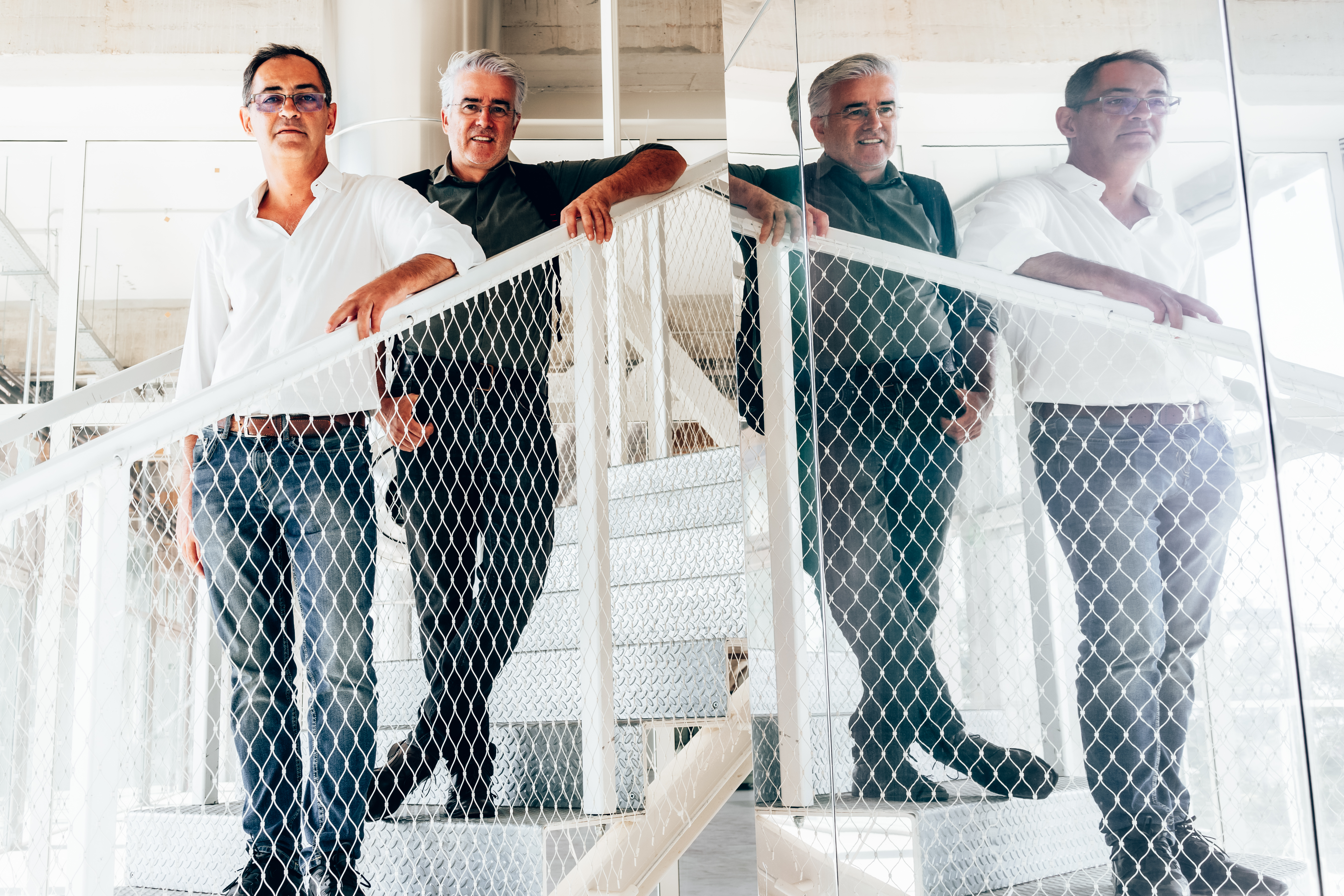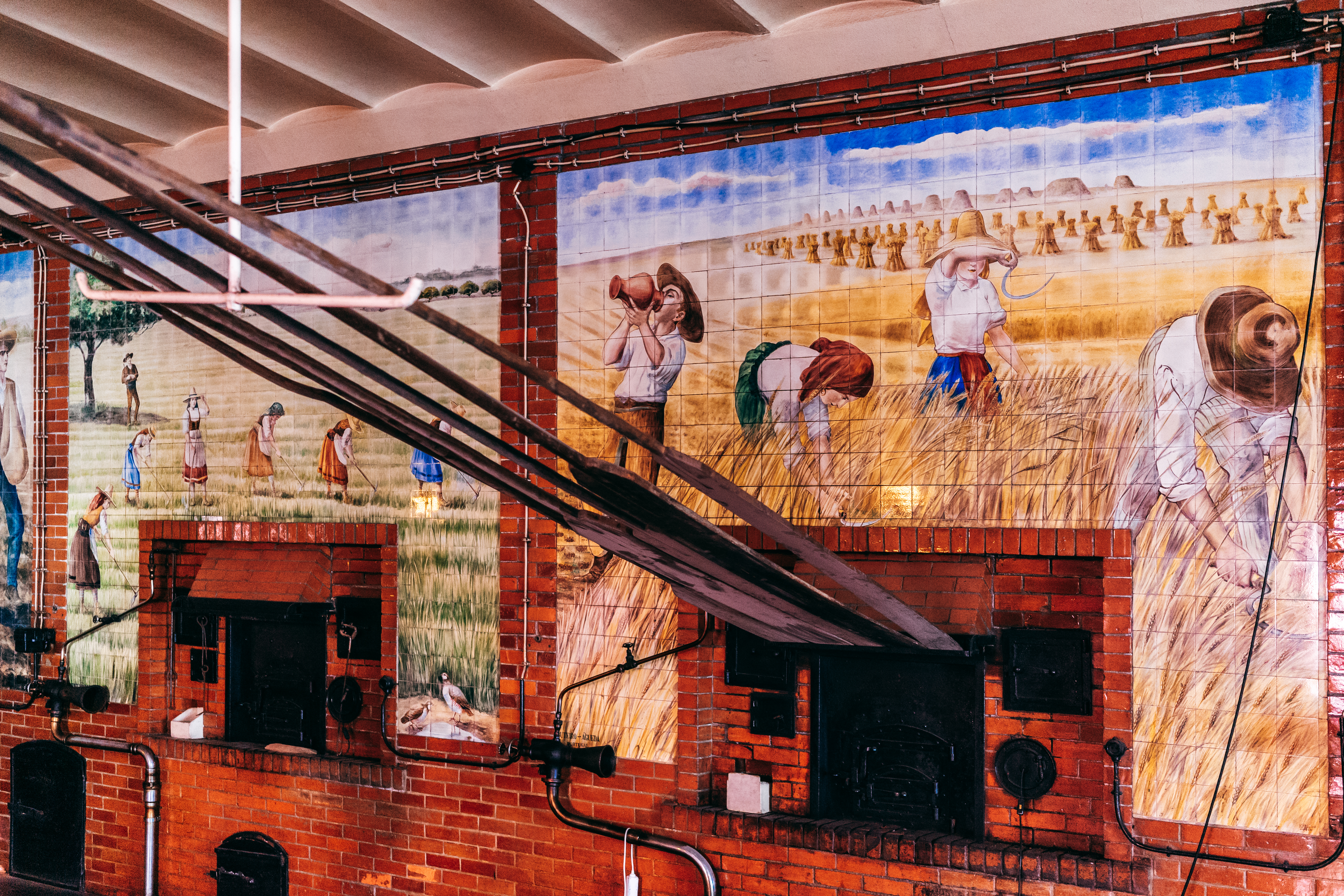Ate least since 2017, news has been flowing about the Beato Creative Hub, the entrepreneurship incubator placed in one of the most forgotten areas of Lisbon. Nearly five years later, a part of this work is opening now. The mayor Carlos Moedas has presented the Hub as the nest of a Unicorn Factory – eight million euros investmenr to support 20 scaleups per year, doubling the support to startups.
History, as we know, is written in beginnings and ends. And Lisbon’s history, with so many vacant buildings waiting to be rehabilitated, is an opportunity to see new stories reborn in abandoned places.
That is exactly what is slowly happening here at Beato.

The mission is “to bring innovation to this part of the city”, says José Mota Leal, the project leader. But also to position Lisbon in the panorama of “entrepreneurial, technological, and creative cities”. And sustainable.
In fact, one of the novelties of the new Beato is its Living Lab, created in partnership with Lisboa E-Nova – Lisbon’s Energy and Environment Agency, and with funding from EEA Grants.
The construction work (delayed by the pandemic) is underway in rua da Manutenção, although the past of the place is still very present: in the old Fábrica do Pão there are pallets set up in the space along old ovens and tiles from other times.
In the main room, a monstrous machine tells the story of the cakes and cookies that were produced here, after the production in wood ovens was replaced by automated ovens. But you can no longer smell the flour: in the distance you can hear the noise of new construction, the soundtrack of change.
A convent, a factory… a center of ideas
How did all this transformation begin?
For a long time this was the Carmelite Convent (better known as “Grilas”). Then a decree of King D. Carlos introduced a Military Maintenance Factory, in 1897, to produce food for the troops and military.
The complex rwached its peak production during the Colonial War, but in 2011 its last factory closed. The Bread factory.
In 2016 the Municipality proposed the transformation of the space and gave it to Startup Lisboa – a start up incubator – to think about the future of this large complex, to propose a model for the rehabilitation of the space: “The goal was to find partners who could rehabilitate the buildings through an architectural project,” explains José Mota Leal.

The partners were selected according to the projects and the buildings were handed over to them as they were, with one catch: no rent for the use of the building until they recovered their investment.
That is exactly what is happening in a large complex of 11.000 square meters, where cookies and even spaghetti used to be produced: Factory Lisbon a campus for startups made in the spitting image of Factory Berlin.
It is one of the buildings that is almost finished.
HCB projects and operations
There are also other tests of Living Lab operations being made, such as the installation of bicycle and scooter charging posts.
And there are more buildings with projects already outlined, waiting for construction to begin:
- In the “Clock Building” (which marked the time and the journey in the factory), a coliving space will appear;
- In the Power Plant, The Browers Company (a SuperBock spin-off) will be installed, and will produce its own craft beer;
- In the “Armazéns das Grilas” (warehouses of the Grilas nuns, known for its arcades), the company Claranet, linked to cybersecurity, will be installed;
- In the old Mill, a museum space will be installed;
- The A Praça restaurant area is already ready and is expected to accommodate 3 thousand workers (the same number as those who worked in the factories).
- Here, a restaurant, an esplanade and a cafeteria will be set up in an old car repair shop, a former administrative services space and a meat factory.
Living Lab is installing soil beds on the rooftop of one of the buildings which will be used to create urban gardens, and the Praça will have a plot for the production of herbs and fresh produce.

In addition, the food cycle in this space will be monitored to assess its footprint. Other Living Lab operations are more comprehensive, explains Victor Vieira from Lisboa E-Nova.
Some Living Lab operations:
- Installation of solar panels;
- Creation of an energy community;
- Installation of intelligent lighting systems;
- “Beato BioBus” project, in which the surrounding school community is invited to collect used cooking oil to be processed at Prio’s factories and injected in the Carris buses;
- Sensoring project through which the energy produced inside the complex can be accumulated;
At this moment, HCB is working with Carris (the bus company) and the Municipaity to redesign the mobility offers. Cars will only be allowed on Grilo Street, where a children’s garden and a public square will be created over a parking lot.
Rua da Manutenção is witnessing the replacement of old machines by the speed of ideas and new technologies.
In time, this entrepreneurial center linked to sustainability will be built. In this new innovative city, Creative Hub will surely bring a new life to Beato?

If you like what you’ve seen us doing, if you get inspired by our stories, if you care about a new Lisbon, more engaging and liveable, if you see any use in this journalism, communitarian and close spare a little bit of your time and consider donating. If you want to be part of this community – join us!


I’ve followed the soap opera around “The Factory” since 2017. When I arrived in Lisbon. I had very little understanding of how the hype cycle is produced in Lisbon. Why has this taken 5 years? Knowing and participating in startup ecosystems around the world, to me this is a joke. There is a lot of talk about the features of what this may become, but there are basic practical necessities that are not addresses. Lets start with: Is there adequate transport for companies willing to relocate there? Unicorn is a great new name. A animal from our fantasies.